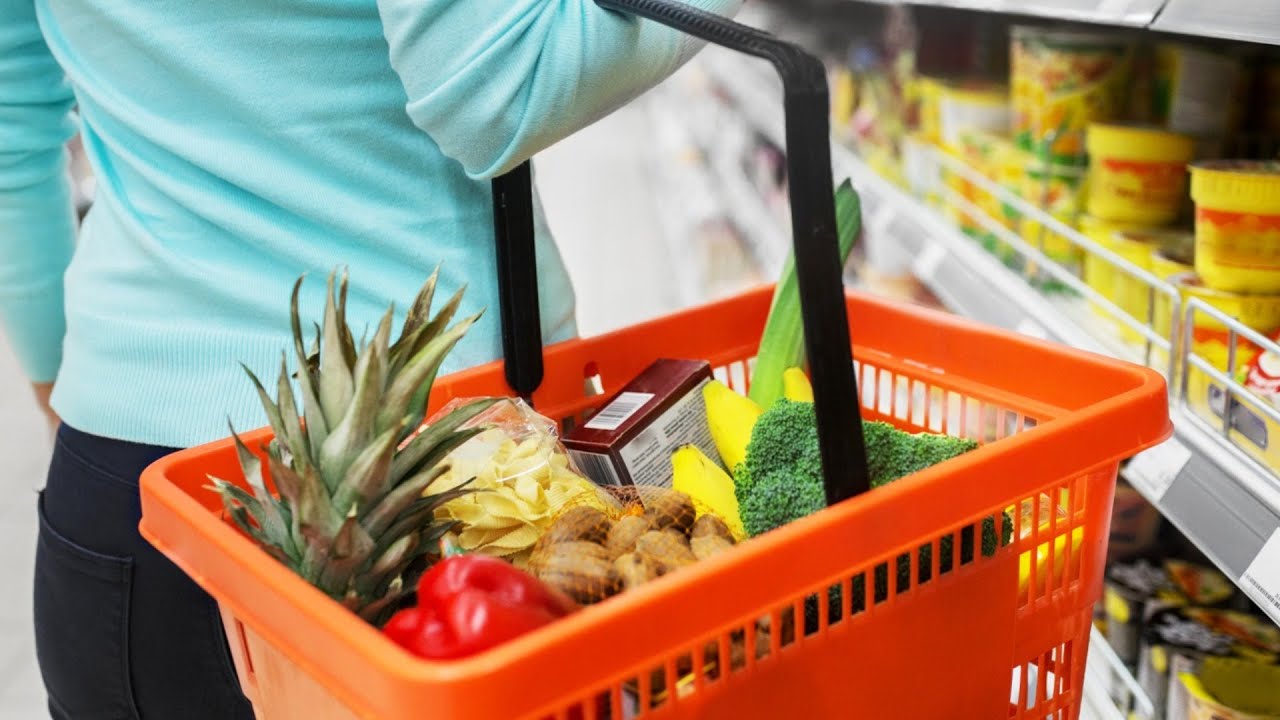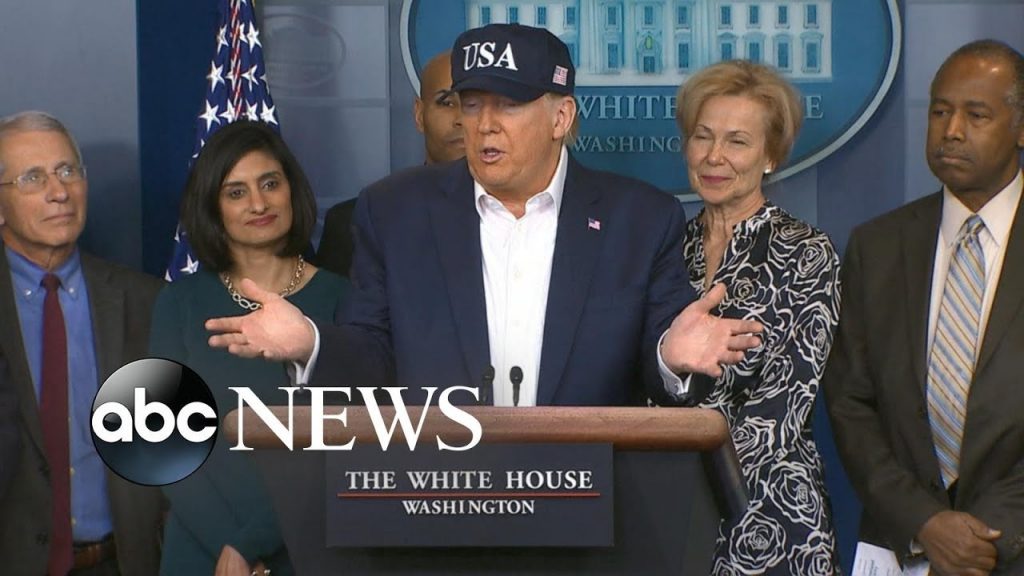The Reason You Shouldn’t Go To The Grocery Store For 2 Weeks

In an attempt to slow the spread of COVID-19, 42 states have ordered people to stay at home unless they’re forced to make an essential trip such as to the grocery store or to work at an essential job.
White House officials took these state-level measures a step further on April 4th. President Donald Trump’s COVID-19 response coordinator, Dr. Deborah Birx, announced at a press conference that people should even stay away from grocery stores and pharmacies for the next two weeks. Officials expect the U.S. outbreak of the disease to peak sometime during that period.
Meanwhile, the Centers for Disease Control and Prevention has advised people to wash their hands with soap and water for 20 seconds, keep distance from other people, and to wear cloth face masks in public in addition to staying home as much as possible. Trump also emphasized that the next two weeks are critical.
But health experts have said the president’s response to the COVID-19 outbreak was too slow and now the United States has more cases than any other nation in the world, with over 400,000 cases and over 12,000 deaths. Health experts say that predicting an epidemic’s peak is tricky, because it depends on how well people maintain social distancing and other measures to prevent the spread of the virus. Even more problematic is the fact that the disease is hitting some states later than others. On March 26th, infectious disease specialist Dr. William Schaffner told CNN:
“[The U.S. is a] very diverse country with a hot spot in New York right now and warm spots. In the next three to six weeks, all those areas will start to surge or will have their curve depressed or blunted by the social distancing that’s going on.”
With most retail shops and public gathering places closed, the grocery store is the one place left where people are frequently found together in both large numbers and close quarters. While few grocery workers tested positive for COVID-19 in the early days of the outbreak, that was in part due to lack of available testing. As more tests have been given, dozens of grocery workers have tested positive, resulting in temporary store closures. Worse still, many grocery workers say they aren’t provided the protective gear to deal with hundreds of customers a day. They also suggest that the biggest threat of infection at the grocery store is not food or product packaging, but other people including their own colleagues.
This puts grocery workers in a difficult position. They can’t not go to work, as people need to buy groceries making their roles arguably more of a necessity than some other industries that have been labelled “essential.” However, they are in danger of infection every time they go to work, and many of them are working longer hours and more shifts due to increased demand. Stressed and exhausted workers are also likely to have lowered immune systems, making them more susceptible to the virus.
Since grocery workers are not considered first responders, they tend to have difficulty accessing vital protective equipment. Additionally, as recently as the end of March, some stores were not allowing workers to wear gloves because the stores wanted to preserve the appearance of normalcy that’s according to a worker at Trader Joe’s. A spokesperson for Trader Joe’s told The Atlantic that the CDC doesn’t recommend the use of gloves in a retail setting, but insisted that employees are allowed to wear them nonetheless.
In many places, it’s probable that customers are infected, too. A Whole Foods worker in Atlanta is reported as having overheard a customer openly admit to believing they have the virus but shopping in the store anyway. As a customer, expert advice suggests that the best way to protect your health and the health of workers is to avoid going to the grocery store during the next two weeks. Although you might be able to protect yourself through self-isolation, they cannot. Chances are, for them, your vigilance could mean the difference between life and death.
What are some tips for stocking up on enough supplies to last up to two weeks?
Due to the outbreak of COVID-19 pandemic, people all around the world have been advised to practice social distancing to slow down the spread of the virus. As a result, governments have implemented various measures to control the movement of people, including the closing of non-essential businesses. One of the critical facilities that have remained open during this period is grocery stores, but visiting them has become riskier than before. Therefore, it is becoming more necessary to minimize visits to the stores in order to reduce the risk of exposure to the virus. Here are some of the reasons why you shouldn’t go to the grocery store for 2 weeks:
Reduced exposure to the virus
Although the grocery stores have put measures in place to ensure the safety of their customers, there is still a likelihood of contracting the virus while shopping. To reduce the risk of exposure, it is recommended to stock up on enough supplies to last up to two weeks to limit your visits to the store. The fewer the visits to the store, the less the chance of contracting the virus.
It helps minimize the spread of the virus
Limiting the number of people in a given space at a time will help curb the spread of the virus. Frequent visits to the store may lead to overcrowding, making it almost impossible to adhere to social distancing rules. By reducing the number of visits, this will make it easier for customers to adhere to the recommended social distance of six feet.
Saves time and money
Reducing your number of visits to the grocery store will help save you time, energy, and money. It is a well-known fact that the more often you go to the store, the more you spend on items you don’t necessarily need. By making a comprehensive shopping list and only visiting the store once every two weeks, you can prioritize your necessities and limit the purchase of impulse items.
Conclusion
In conclusion, with the pandemic still very much in force, it is vital to adhere to safety procedures to keep ourselves, our families, and the community healthy. Minimizing trips to the grocery store is a vital procedure in reducing our exposure to the virus. By limiting our visits, we will be protecting ourselves, our families, and the community at large. It may seem like a daunting task at first, but it is a necessary sacrifice that would lead to greater benefits in the long run.









Breaking news: The famous film star Tom Hanks has the coronavirus
Iran launches missiles into US military base in Iraq
Fareed Zakaria: Boris Johnson is bad for Britain, Europe and the US
Ordinary citizens stand up as politicians cower to the rage mob
Tucker torches California for providing free alcohol, nicotine to homeless